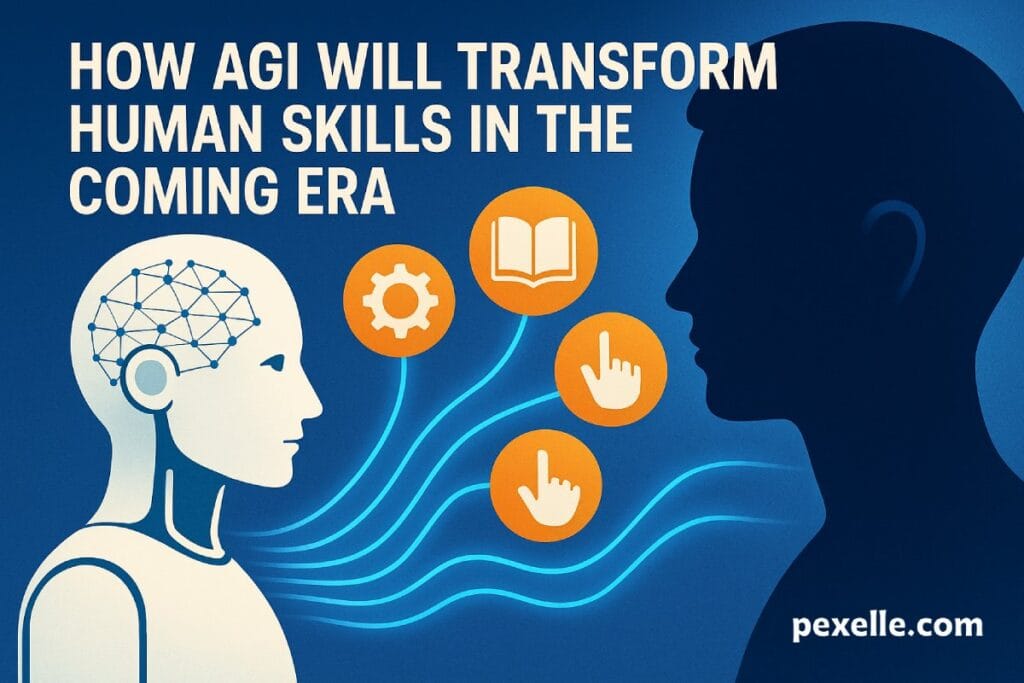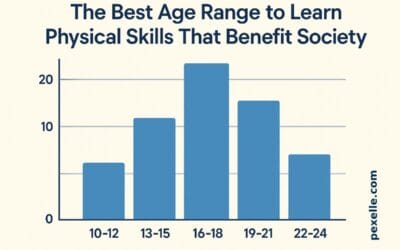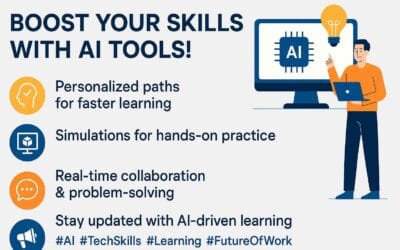How AGI Will Transform Human Skills in the Coming Era

1. A New Paradigm of Human Capability
The rise of Artificial General Intelligence (AGI) will not be a simple continuation of current AI trends — it will be a structural shift in how humans acquire, use, and value skills. Unlike narrow AI, AGI will not just automate specific tasks but understand and perform complex reasoning across domains. That means many technical, analytical, and operational skills that once required years of human learning may become instantly replicable by AGI systems.
This will force a redefinition of what it means to be “skilled.” In practical terms, knowing how to do something will no longer be a competitive advantage. Instead, knowing why, when, and where to apply knowledge — combined with strong judgment and adaptability — will become the new differentiator.
2. Skills That Will Become Obsolete or Automated
AGI will quickly automate many skills that rely on pattern recognition, structured logic, and procedural tasks, including:
- Programming and software development (at least in their current manual form)
- Legal and financial document analysis
- Translation and transcription
- Routine engineering calculations
- Data processing and reporting
These aren’t “maybe” scenarios — they’re inevitable. AGI will outperform humans in speed, precision, and multi-domain integration. Any skill that is static and rule-based will lose its economic value. Those who rely solely on technical skills without strategic or creative layering will face rapid obsolescence.
3. Skills That Will Explode in Value
Paradoxically, the era of AGI will make some uniquely human abilities more valuable than ever. These include:
- Strategic reasoning — making judgment calls in uncertain, high-stakes environments.
- Systems thinking — understanding interconnected domains and anticipating second-order consequences.
- Ethical and cultural interpretation — deciding what should be done, not just what can be done.
- Emotional intelligence and trust-building — leading teams, shaping narratives, and aligning human values.
- Adaptive creativity — combining technical power with original thought and vision.
In other words, AGI will make operators less valuable but orchestrators indispensable.
4. Education and Career Structures Will Collapse and Rebuild
Traditional education systems are designed around slow, linear skill acquisition. That model will break under AGI pressure. Instead of years spent learning skills that can be instantly replicated by machines, people will need:
- Ultra-fast, iterative learning models
- Skill stacks that focus on strategic leverage, not technical memorization
- Interdisciplinary fluency, combining technology, ethics, strategy, and communication
Career paths will shift from “I’m a specialist in X” to “I can lead, design, and adapt in systems that use X.” Those who cling to static job titles will fall behind.
5. Humans Will Compete on Purpose, Not Performance
AGI will make performance — speed, accuracy, and knowledge — a commodity. What will remain scarce is purpose, vision, and moral leadership. People who can align AGI’s power with meaningful goals will lead industries, governments, and cultural movements.
The winners in this new landscape will be those who:
- Continuously re-skill and up-skill, not through brute memorization but through strategic adaptation.
- Build strong cognitive flexibility, able to reframe problems and design systems around AGI.
- Operate as architects of value, not as workers trapped in obsolete roles.
6. Final Thought: AGI Won’t Replace You — But It Will Replace the Unadaptable
AGI won’t destroy human skills. It will expose weak ones and magnify strong ones. The people who treat AGI as a collaborator and tool — not a threat — will dominate the next era. Those who rely on fixed skill sets will simply become irrelevant.
In short, the skill of the future is not a single ability — it’s adaptability itself.
Source : Medium.com



